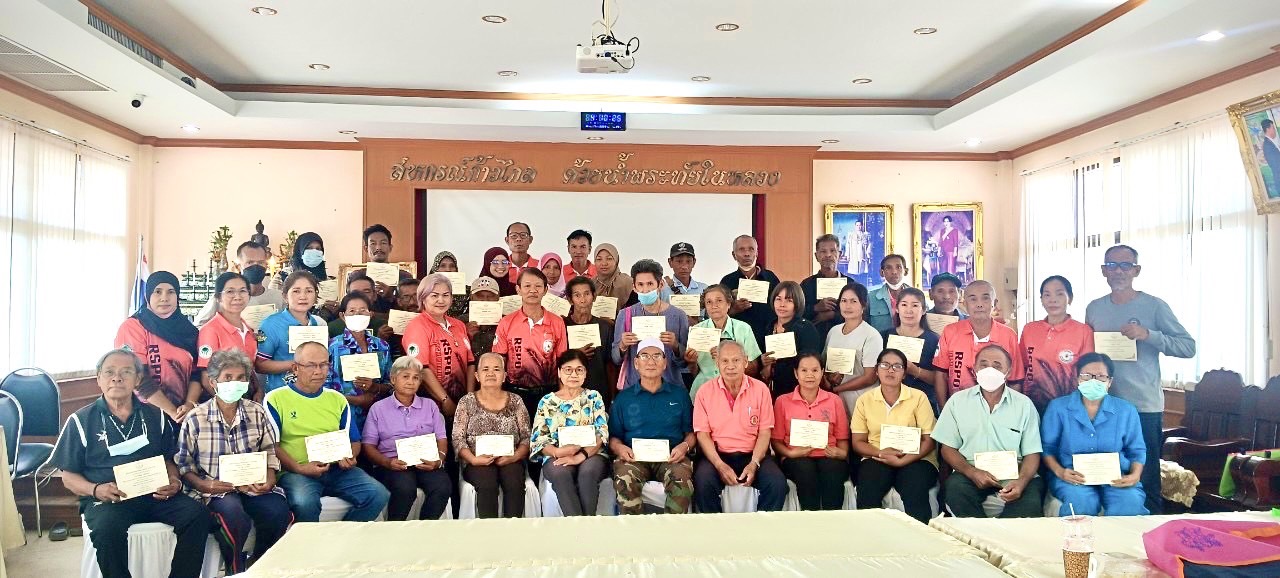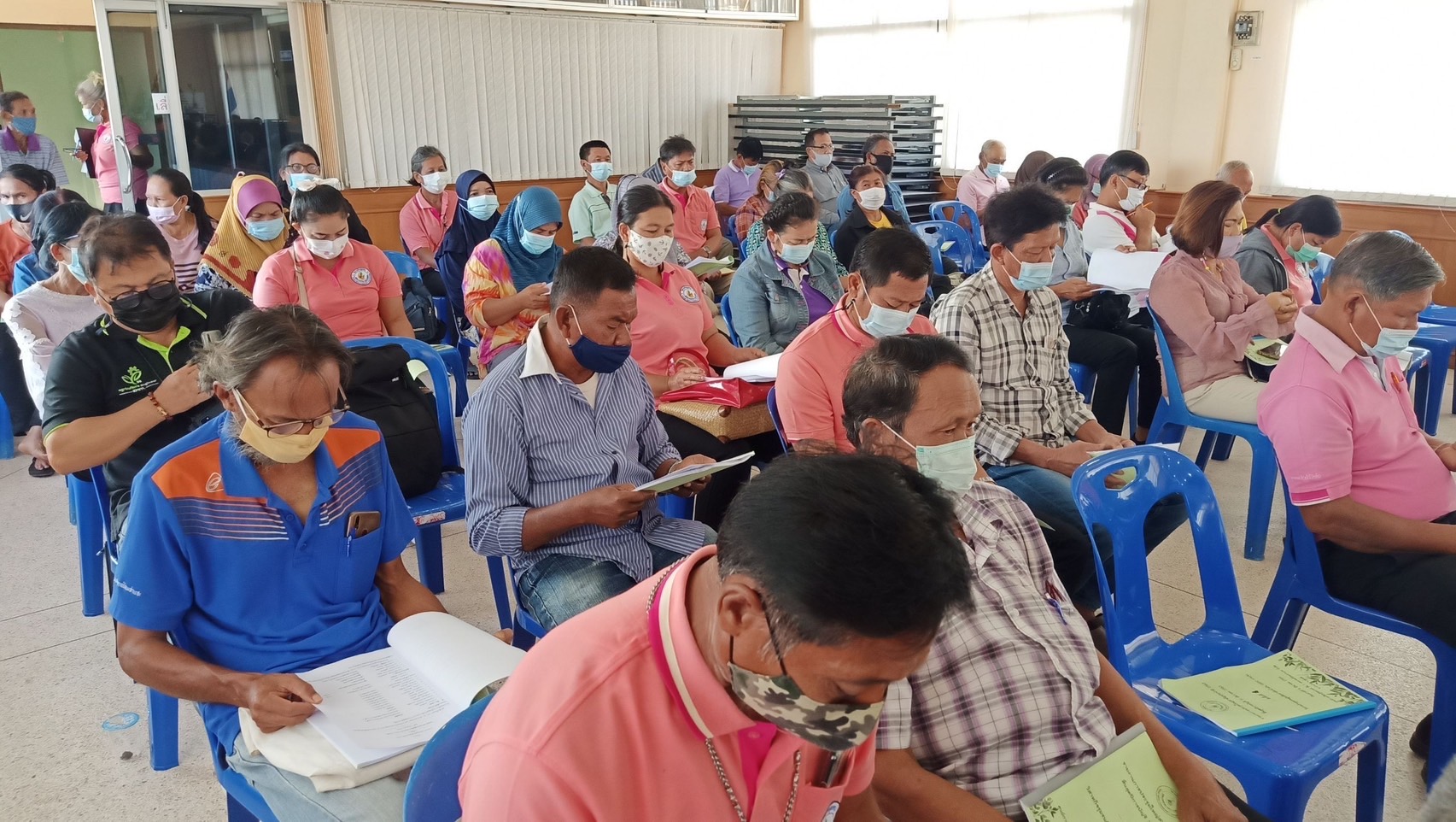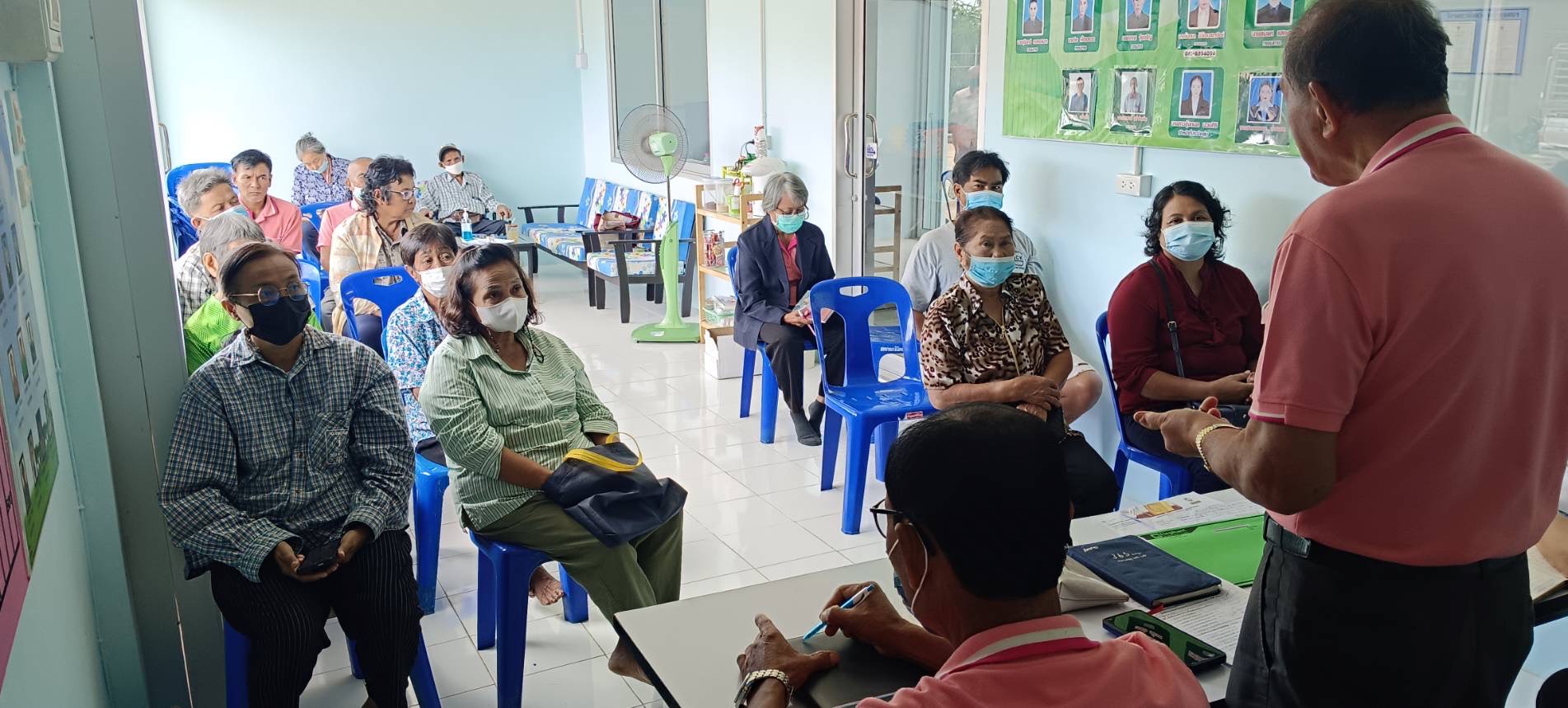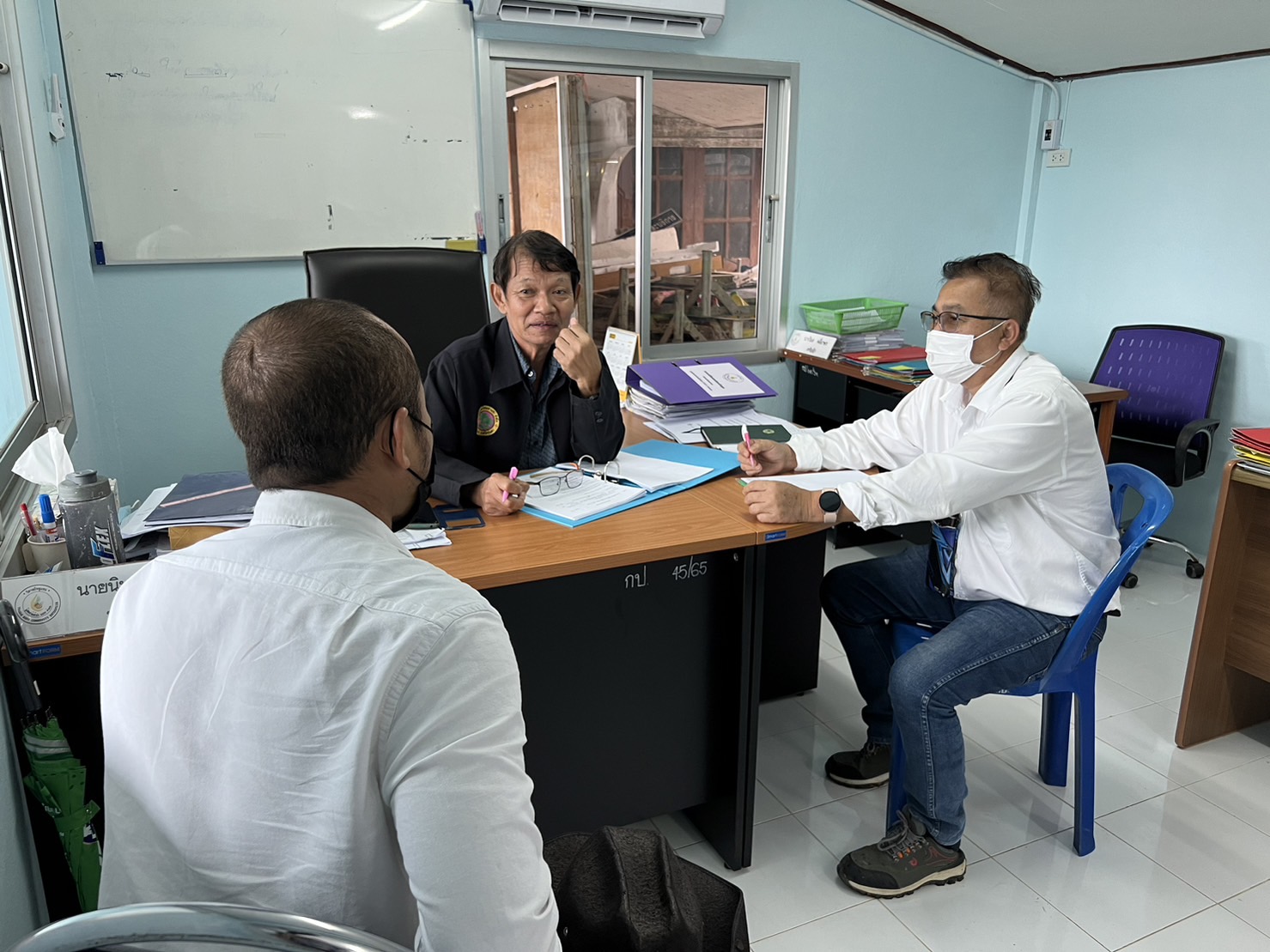
About the group
Number of smallholders: 856 (443 Men, 413 Women)
Total Land Area: 3610.8 Ha
Status: Certified
Group location: 50 Moo.13 Thasae Sub-District, Thasae District, Chumphon Province, 86140
Country: Thailand
On-going Facilitator: Prince of Songkla University, Suratthani campus
SUSTAINABILITY JOURNEY STORY
“Farmers used to burn palm fronds and waste on their farms and spray insecticides without considering the risk of runoff into the rivers. When they shifted to sustainable oil palm plantations with better farm management, they no longer harmed natural resources and the environment.”
Mr. Niphon Thetrat, Chairman of Thasae RSPO Certified Community Enterprise
………..
“Previously, when palm prices went up, fertiliser prices rose accordingly and never decreased again. But value was added once the palms were certified as sustainable products. The increased price from value-added products can be used to replace the purchase of fertilisers without detracting from the actual price of palm,” Nipon Thetrat, Chairman of Thasae RSPO Certified Community Enterprise shared about the group’s decision to become an RSPO Member for sustainable oil palm plantations.
“Members used to burn palm fronds and waste without considering the risk of runoff into the rivers. When the concept of sustainable palm oil plantations started, most members managed their farms better. They do not harm the environment as they now adhere to the principle that their work must be environmentally friendly. Another positive impact since certification is that members now record production costs and productivity each year to calculate profits and return on investment. Members now keep farm records, which differs from before when there was little or no recording. Farmers could not even recall their sales volume over time.”
In discussing the economic and social impacts on local communities, Niphon added, “In terms of the economics, oil palm prices will continue to increase. As to the social impacts, there will be no intrusion on, or destruction of, natural resources as the group regulations include this principle.
“The group has complied with social and environmental initiatives and clearly identifies areas of functional responsibility, such as the environment, farm management, occupational health, mentorship and social and labour departments.
“The group does not use child or trafficked labour. Using insecticide requires justification and warning signage, proper storage of equipment and a no-burning policy for forests or waste products. We can handle all these issues without fail because the group has many departments,” said Niphon.
Speaking about supporting partnerships, the Group Manager shared, “The group obtained funds from the Ministry of Agriculture and Cooperatives to conduct trainings. Currently, the group is under Tha Sae Cooperative Factory, which has an RSPO extraction mill to support the sale of members’ products. The productivity from the group, after certification, will be sold to this mill.”
When asked about the difficulties in shifting to sustainable oil palm plantations, Niphon answered, “The main challenge is that the traditional style of farming is not systematic. Farmers simply planted at any available location. As to spraying pesticides, they did it without taking any consideration of environmental impacts. However, as RSPO Members, they are now required to adhere to the standards. The group holds meetings to educate members. Most of the farmers are elderly people who may be resistant to change but fortunately, they often have young family members who can assist them.”
On planning for the next year and five-year goals for sustainable oil palm production, Niphon said, “We aim to increase membership but still cannot specify the target number. Having studied other groups, if the group can show consistent value added to products, farmers will have more interest in becoming members.
“One really big change is that, in the past, members used to farm individually. But they now work as a group and follow the common standard. The advantage here is that the group will be able to determine productivity due to systematic data collection protocols among members. If members run into problems, the group can offer immediate assistance.”
On the topic of crop diversification, Niphon said, “Farmers grow cocoa and Northern Black wattle, allocating as much as 30% of existing farmland to raise farm animals. The reason for planting mixed crops or raising animals is, when palm prices drop, they will not plant monocultures but grow mixed crops instead, which will generate good results.”
Speaking about future challenges following certification by RSPO, Niphon said, “If there are more members, the next generation will have easier work. Most farmers now are elderly. If they let their children become members and transfer land to them, the children will have fewer issues as they understand marketing principles better.
“RSPO is the future with its advanced trading strategies, selling of credits and value-added principles. Current farmers have not transferred the responsibility of farming to their children. But young people have a better understanding and can envision how RSPO increases the value of their products,” concluded Niphon.
Project Impact
Total area covered by the project
3610.8 Ha
Number of smallholders benefitting from this project
856 Smallholders
Number/percentage of women supported by this project
48.25% women in this project
How you can support
You can provide support in any way you prefer.
GROUP CONTACT
Representative Contact
Niphon Thetrat | Group Manager | [email protected] |
Rungkamol Nuamsiri
Group staff
(+66) 98 746 9673
[email protected]
IMAGE GALLERY

Thasae RSPO Community Enterprise

Thasae RSPO Community Enterprise

Thasae RSPO Community Enterprise

Thasae RSPO Community Enterprise

Thasae RSPO Community Enterprise




